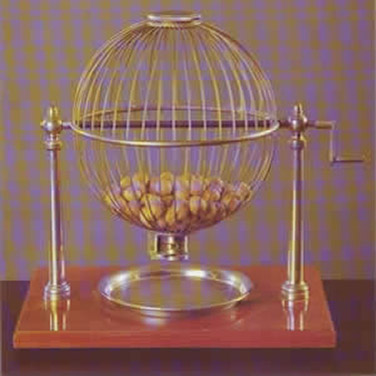Lottery

There are two versions of lottery games: in passive lottery (e.g. bingo), the player participates in the draw for the winning number by purchasing a ticket with one or several numbers printed on it. In the case of active lottery, however, the players bet on certain numbers from a finite series of digits. In the Swiss lottery, for instance, six numbers out of forty-five are crossed off on a lottery ticket. The six winning numbers are determined subsequently in a draw. The amount of prize money is governed by how many numbers are correct.
History
The oldest references to this extremely common and popular game of chance date back to antiquity. The Roman emperors Augustus and Nero already held sweepstakes to entertain the populace. The first lotteries in today’s sense of the word emerged in Burgundy and Flanders in the fifteenth century. The "6 out of 45" version originated in Genoa in the sixteenth century. The lotteries served as a practical way for cities to raise money. The successful concept subsequently spread throughout Europe. The proceeds from lotteries are also used to fund charitable projects. Nowadays, there are state or privately organised lotteries in practically every country in the world.
Mathematics
In the lottery, the probability of every number and thus every lottery sequence is the same. If the number of digit combinations in the "6 out of 45" version is calculated with binomial coefficients, it works out at approximately 8 million. The probability of a certain combination is therefore approximately 1:8 million. If the fact that the prize money always depends on how many players end up in a prize category is taken into consideration, however, it is a different story. The quotas are higher for numbers and number combinations that are selected rarely. On the other hand, a combination containing numbers that are bet on frequently is less advisable. Dates and regular geometric patterns are unfavourable.